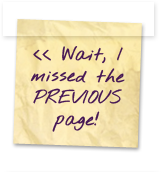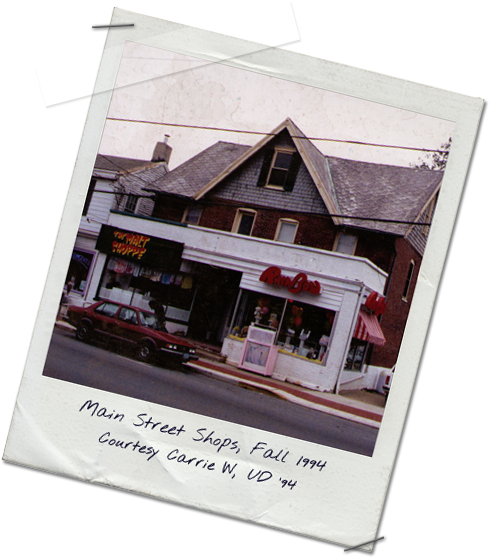
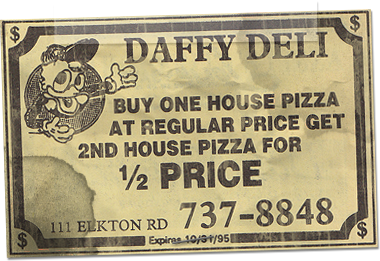
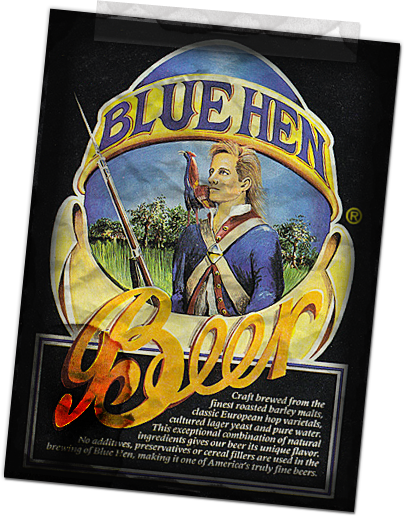

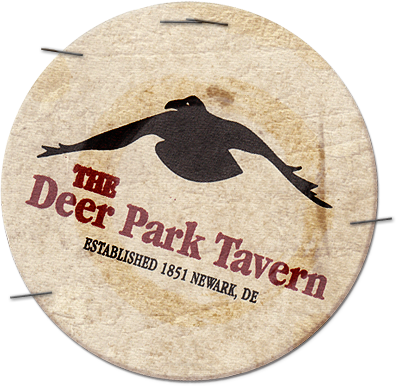
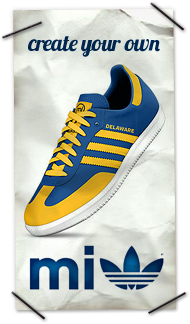
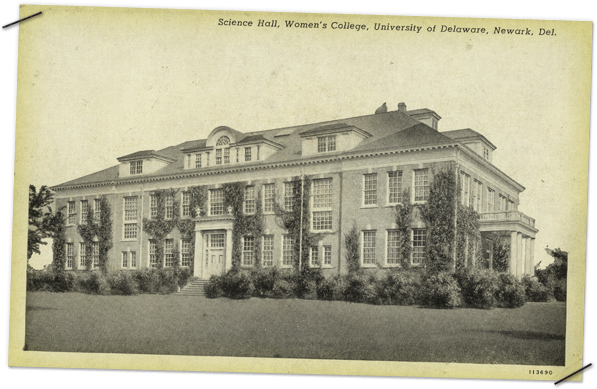
Chapter 1 (cont.)
So, unless you had a friend or sibling that attended Delaware, all you had to go on to prep for college was what you learned at UD’s New Student Orientation. Whoops, wait a second, that’s not necessarily true. Enter…
THE PRACTICAL BLUE HEN
Front cover of the 1990 / 1991edition of the PBH, courtesy and © Marc D, UD '91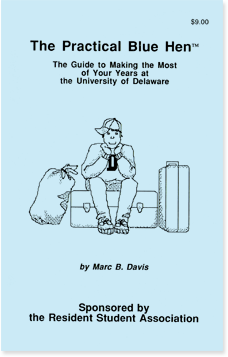 Also known as the “PBH”. First published in 1989 by Marc D (UD '91), The Practical Blue Hen was an incoming UD student survival guide -- roughly 80 pages -- written from the point-of-view of current students. I still have my copy of the '91 - '92 edition of the PBH, and it’s gotta be one of my favorite pieces of Delaware nostalgia. I remember reading it repeatedly in the weeks leading up to the start of my freshman year. Would also like to say, that the PBH had a considerable influence on this website…albeit 20 plus years later!
Also known as the “PBH”. First published in 1989 by Marc D (UD '91), The Practical Blue Hen was an incoming UD student survival guide -- roughly 80 pages -- written from the point-of-view of current students. I still have my copy of the '91 - '92 edition of the PBH, and it’s gotta be one of my favorite pieces of Delaware nostalgia. I remember reading it repeatedly in the weeks leading up to the start of my freshman year. Would also like to say, that the PBH had a considerable influence on this website…albeit 20 plus years later!
After Marc D graduated in 1991, he handed the book off to the RSA (Resident Student Association), which updated and published it every year, through the last edition which was for '02 - '03. Hey, pretty respectable run, right? And via the wonders of Google, I was actually able to track down Marc to talk about it…
Digger: Origins of, and inspiration for the PBH?
Marc: I remember chatting with friends about how they wished they knew upfront some of those things that they had to find out over time, like how to get through Drop / Add, getting a parking permit -- or just to know that freshmen couldn't get a permit to park anywhere but the stadium -- things like that. So, I got the idea to write a guidebook on all the practical things that the university wouldn't put in an official publication, from a student's perspective.
I was involved in DUSC and edited the Who's New at the University of Delaware, which was basically a facebook of freshmen. I saw how many people ordered the Who's New book through the mail before school, and it had nothing of use except our senior year high school yearbook photos. So, I figured that incoming freshmen would want something useful. If not the kids, certainly parents would order it. I decided to sell it myself while a student, then hand it off after I graduated.
Digger: Did you just start writing it on your own and pitch it to the RSA to publish, market, and distribute...or did you do all of the work for the first edition, and then hand it off to the RSA for the years thereafter?!
Marc: I knew if I wanted to sell it, I needed the sponsorship of a student group. I went to the RSA because it was the most stable organization on campus. The group was service-oriented, had honest members, and had a history of training the leadership.
While writing the book and attending classes, I had to sell the concept to the RSA as well as to their advisor and faculty. I made a presentation to UD’s administration, to demonstrate that the book would benefit the school and students. I made a deal that I would do all the legwork for the first couple of years, then pass the book along to the RSA, when I graduated.
Digger: Logistics of the whole thing? How much tweaking and research did you have to do for that first edition?
Marc: I had worked at the Information Desk in the Perkins Student Center, so I had a feel for many of the questions freshmen ask. Most of the book was straightforward information that most students knew after a semester or so on campus. I spent about a hundred hours asking questions to friends and random students about various topics, and another couple hundred hours on the writing and editing. There was a lot of discussion around “Fun Things to Do for Under $5 (Even on Weekends).” After a first 50 page draft was completed, I circulated copies and begged people to review it -- friends, strangers, professors. After offering beers for comments, I got some good feedback which made the book really practical.
Drafts were circulated to several people in the university administration. Once they were convinced that the book would contain mostly useful things, they were basically hands-off. I remember one edit: there was an article in The Review warning that some of the squirrels around campus may have rabies. I had included a graphic of a squirrel with a warning not to let one get close enough to bite because of the rabies risk. When the administration reviewed an early draft, they asked me not to include that because it might scare kids. So I changed the line to, “Don't let a squirrel get close enough to bite you; they are not pets.”
I produced the book on a Macintosh, hokey bitmap graphics and everything. When the book got too long, it overwhelmed the memory on my Macintosh SE. I spent the last month of the spring semester my sophomore year sequestered in the basement of a computer center, where a friend who worked there would let me hog the Macintosh all night. I missed my fraternity formal that year because I was so busy on the book.
Digger: Where and how was it sold and marketed?
Marc: The book was sold mail order. With the sponsorship of the RSA, I was able to get a mailing list of incoming students. The solicitation letters had the University of Delaware and RSA logos, so every parent of incoming freshmen had to open them and read the offer. I mailed out the offers in May. The mailing list was in the form of address labels. There were four thousand of them that had to go on envelopes, during finals week. I offered pizza and beer to my friends on my floor in Sypherd, to help put the labels on. During the summer, I would stop by campus once a week and process responses. The books mailed out in early August.
Digger: And how did the PBH sell…and the reaction to it?
Marc: I sold approximately 1600 books each year, that is, to about 40% of incoming freshmen. I took a financial risk, especially in that first year. The RSA received a portion of the proceeds while I paid for printing and mailing. The Practical Blue Hen was my way of finishing college without student loans.
I received great feedback; a few thank you letters from parents and some complimentary notes from university staff. I put some of the positive quotes on the back of the second edition.
After the first year doing the book, I knew I wanted to go into direct marketing. I took a job after graduation managing direct mail campaigns, and have been working in the direct marketing industry ever since.
Digger: The '02 - '03 edition was the last one...thoughts?
Marc: My expectation back in 1991 was that the book would last five to seven years, before being done in by student turnover, even with an organization as stable as the RSA. I'm pleased to hear that it lasted as long as 12 years after I graduated.
![]()
And now we have Heather K (UD '00), who worked on The Practical Blue Hen in 1999 and 2000…a full decade after Marc D first published it!
Digger: What did you know about the PBH before you worked on it? Did you buy one for your incoming first year?
Heather: I did know about the PBH before I came to Delaware, but I had family members who also went to UD and I thought I knew everything. Once I started editing the PBH as a junior, I realized it contained some pretty useful stuff.
Digger: How did you get involved with writing and editing of the PBH?
Heather: I served as RSA's Faculty Senator in my sophomore year and then was president during my junior year, and as an English major, it just made sense that I work on it. I co-edited it twice with Stephanie M, also an English major.
Digger: How much revising did you have to do to the content from year-to-year (from the previous edition that you "inherited")?
Heather: There was always lots of tweaking because -- as you know -- venues in Newark are constantly changing, UD is always rebuilding, policies change, and so on. So we always double-checked everything each year; the resources, the contacts, the advice, the anecdotes, etc. And of course we made content improvements each year by adding sections that we thought would be important -- like roommate mediation policies -- and taking out sections that seemed less helpful.
But much of the editing had to do with updates. Which student organizations are new this year and which ones disbanded? How much will it cost to get a parking pass next year? Are these the updated checking and savings account descriptions from the local banks? Which construction projects will begin next year -- thus making the North Mall completely un-walkable -- and which will (supposedly) be finished? Is that ice cream place on Main Street still around? If Rainbow Records moved again, did they still keep the same phone number? Are any of these bureaucratic procedures done on this very new “Internet” thing? The questions and considerations were endless. We rewrote many sections each year. But things like “What to Pack” remained constant…although, if we alluded to one's favorite Guns 'N' Roses poster in 1990, we probably changed it to a something more current.
But editing the content was just the beginning. There was also the soliciting of orders from eager parents and future freshmen, the printing process, and mailing out the final copies. It was an intense undertaking for two people, especially two people in college. My hands touched thousands of mailers and over a thousand final copies of the PBH. The money we made went back to RSA’s budget, which usually went back to programs and events hosted by the residence halls.
Digger: Thoughts on the '02 - '03 edition being the last PBH?
Heather: It's sad that the RSA had to let go of the project. I heard that it was simply too much work. Editing the PBH was like a part-time job, and while the experience was helpful for my resume, especially since I was an English major, I can understand why others might have had to let it go. But as the inside jacket says, “The Practical Blue Hen is neither endorsed or denounced by the university.” I love that concept -- that current students can talk straight to future students about all aspects of university life in something other than the glossy promotional materials of the school. The PBH was fairly rustic. Someday somebody will see a copy and decide to start it up again…I hope.



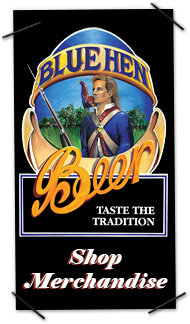
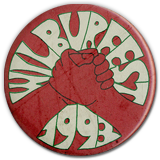
Home | About | Press | Links | Credits | Contribute | Site Map | Facebook | Twitter
Buy the Print Edition | Shop DelTees | Shop DelaGear | Blue Hen Beer Merchandise
MugNight.com, Glory Days at Delaware, and DelGrads are © 2006 – 2015 the guy who made this site. Website designed by Digger Designs.


